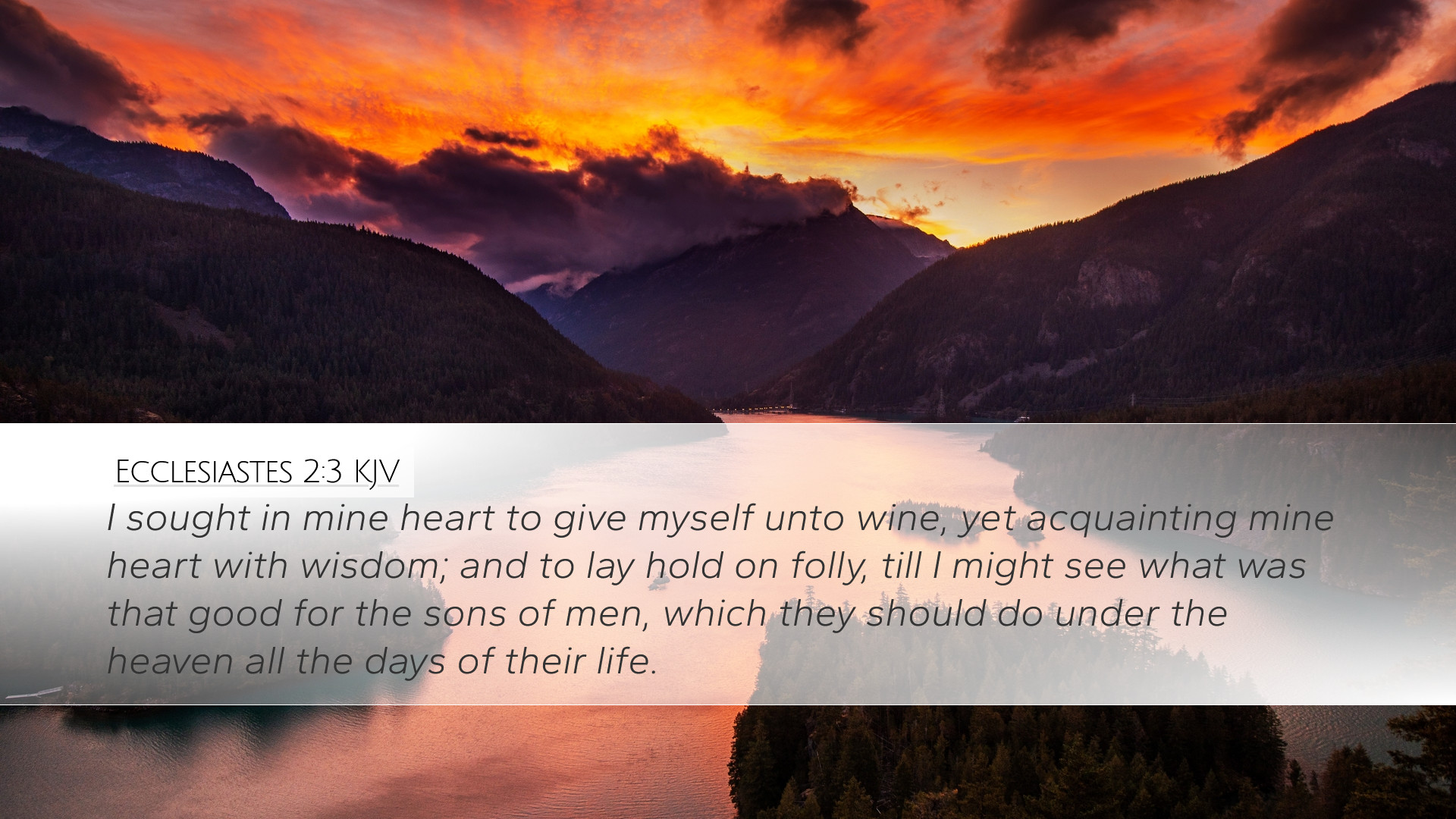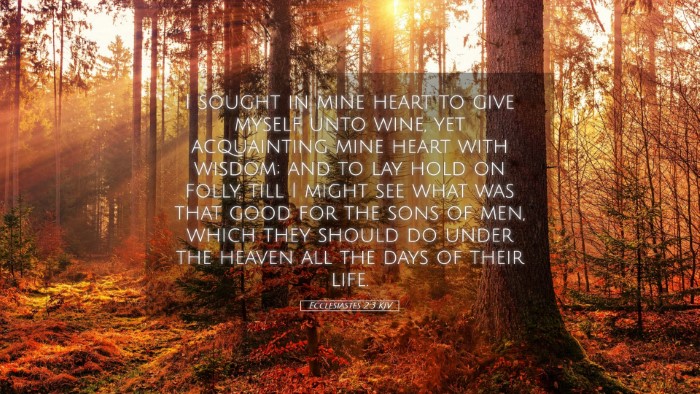Ecclesiastes 2:3 Commentary
Verse: "I searched in my heart how to gratify my flesh with wine, while guiding my heart with wisdom; and how to lay hold on folly, till I might see what was good for the sons of men to do under heaven all the days of their lives."
Overview
The book of Ecclesiastes is often recognized for its exploration of life’s meaning and the futility of human endeavors apart from God. Chapter 2, particularly verse 3, encapsulates the richness of the author’s introspection regarding pleasure, wisdom, and the human experience.
Context of Ecclesiastes
The author, traditionally identified as Solomon, embarks on a quest to discover the essence of joy and satisfaction in life. This quest is driven by a deep desire to understand not just the fleeting pleasures of existence but ultimately to attain wisdom amidst apparent vanity.
Commentary Insights
1. Seeking Pleasure and Understanding
According to Matthew Henry, the phrase "I searched in my heart how to gratify my flesh with wine" reflects Solomon’s attempt to find satisfaction through indulgence. However, the intent of this search is anchored in wisdom. The heart, in biblical literature, often denotes the seat of emotions and intellect, and here it symbolizes the struggle between hedonism and the pursuit of rational understanding.
2. The Role of Wisdom
Albert Barnes emphasizes the dual role of wisdom in this context: it guides the heart towards prudent enjoyment while simultaneously critiquing frivolous pursuits. This tension highlights the biblical perspective that wisdom is not an abandonment of pleasure but rather a framework within which pleasure can be appropriately understood and enjoyed. The mention of “guiding my heart with wisdom” points to an acknowledgment that true fulfillment transcends mere physical indulgence.
3. Folly and its Evaluation
In the pursuit of understanding what is “good for the sons of men to do,” Solomon includes the element of folly in his analysis. Adam Clarke interprets this as Solomon's recognition that folly exists not merely as a distraction but as a necessary contrast that sheds light on the value of wisdom and meaningful pursuits. This search for folly serves to illuminate the temporary nature of pleasure and existence itself, reinforcing the idea that life's significant undertakings need to be evaluated against their holistic contribution to the human experience.
4. Thematic Reflection on Human Endeavors
Solomon’s reflections lead him to contemplate “what was good for the sons of men to do under heaven.” Matthew Henry points out that this inquiry signals a broader theological question regarding the purpose of human existence. In light of eternal truths, earthly pleasures can seem trivial, yet Solomon's exploration affirms the importance of engaging genuinely in life's endeavors while recognizing their transient nature.
Applications for Today
The insights gained from Ecclesiastes 2:3 can be profoundly applied in various ministerial and scholarly contexts.
- Pastoral Counseling: Understanding the balance between enjoying life and recognizing its fleeting nature is crucial for providing counsel that encourages wellness in both body and spirit.
- Theological Reflection: The contrast between wisdom and folly invites deeper theological discussions about human nature, sin, and redemption.
- Educational Framework: For students and scholars, this verse provokes critical thinking regarding how we evaluate the pursuits and pleasures of life against spiritual and eternal truths.
Conclusion
The exploration of Ecclesiastes 2:3 reveals the depth of Solomon’s inquiry into pleasure, wisdom, and the essence of human existence. His reflections encourage a thoughtful engagement with life’s pursuits, urging readers to navigate the interplay of enjoyment and wisdom. In both historical and contemporary contexts, the principles gleaned from this verse remain relevant, guiding individuals towards a profound understanding of what it means to live purposefully.


